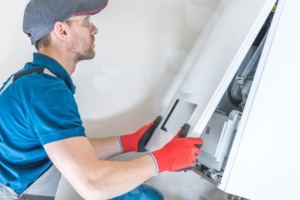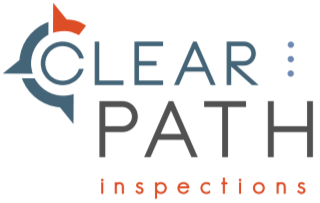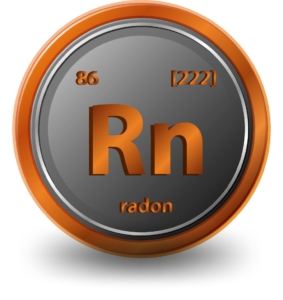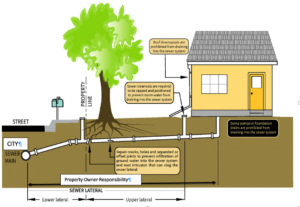Unveiling the Benefits of a Furnace Inspection: Your Path to Comfort and Safety
As the colder months approach, homeowners often find themselves reaching for the thermostat to summon the warmth of their trusty furnace. However, before you fully embrace the cozy ambiance of a well-heated home, it’s crucial to consider the importance of a furnace inspection. This routine maintenance task offers an array of benefits that extend beyond mere comfort, encompassing safety, efficiency, and financial savings. Let’s delve into the manifold advantages of a furnace inspection and why it should be at the top of your seasonal to-do list.

House Heating Unit Repair by Professional Technician.
- Ensuring Optimal Efficiency: A furnace that operates efficiently not only warms your home effectively but also consumes less energy, resulting in reduced utility bills. During a furnace inspection, HVAC professionals meticulously examine every component of your heating system, ensuring that it’s running at its peak performance. They clean and replace air filters, check for obstructions in ducts, and ensure proper ventilation. By addressing any issues early on, the inspection can help prevent a decrease in efficiency that might go unnoticed and lead to higher energy costs over time.
- Prolonging the Lifespan of Your Furnace: A furnace is a significant investment, and like any other mechanical system, it requires regular care to extend its lifespan. Routine inspections can identify minor issues that, if left unattended, could escalate into major problems, potentially causing irreversible damage. Addressing these issues promptly not only prevents breakdowns but also helps your furnace perform optimally for years, saving you the cost of premature replacement.
- Enhancing Safety: Safety is paramount when it comes to heating systems. Furnaces that burn fuel, such as natural gas or oil, produce combustion byproducts that must be properly vented outside. A malfunctioning furnace can lead to a buildup of harmful gases like carbon monoxide within your home, which can have serious health implications. During a furnace inspection, technicians thoroughly check the heat exchanger, flue, and ventilation systems to ensure that no leaks or blockages are present, thus safeguarding your family from potential health risks.
- Preventing Emergency Breakdowns: Furnace breakdowns have a knack for occurring at the most inconvenient times, usually during the peak of winter when you rely on your heating system the most. A proactive furnace inspection can identify potential issues before they escalate, reducing the likelihood of an unexpected breakdown in the middle of a chilly night. By addressing these problems in advance, you can avoid the stress, discomfort, and extra expenses associated with emergency repairs.
- Maintaining Warranty Validity: Many furnace manufacturers require regular maintenance as a condition for honoring the warranty. Skipping routine inspections might result in voiding your warranty, leaving you financially responsible for repairs that should have been covered. By scheduling regular furnace inspections, you not only adhere to warranty stipulations but also demonstrate your commitment to maintaining your heating system in top condition.
- Contributing to Indoor Air Quality: A clean and well-maintained furnace contributes to better indoor air quality. Dust, debris, and allergens can accumulate within the system and be circulated throughout your home if not properly managed. Regular inspections involve cleaning and replacing air filters, reducing the presence of airborne particles and allergens. This results in cleaner, healthier air for you and your family to breathe.
- Environmental Responsibility: In an age of increasing environmental awareness, taking care of your heating system goes beyond personal comfort. A well-maintained furnace operates more efficiently, consuming less energy and reducing its carbon footprint. By ensuring that your heating system is running at its best, you’re actively contributing to a more sustainable and eco-friendly household.
- Expert Insight and Advice: Furnace inspections don’t just entail mechanical checks; they also provide an opportunity for homeowners to gain insights from HVAC professionals. These experts can offer guidance on how to optimize your heating system’s performance, such as setting the thermostat efficiently, managing air filters, and using programmable thermostats to your advantage. This advice can empower you to make informed decisions that save energy and money in the long run.
- Increased Home Value: When it comes to selling your home, potential buyers often consider the state of major systems, including the heating system. Having a record of regular furnace inspections and maintenance can boost your home’s value and appeal to prospective buyers. It showcases your dedication to home upkeep and provides assurance that the heating system is in excellent condition.
- Peace of Mind: Perhaps one of the most underrated benefits of a furnace inspection is the peace of mind it brings. Knowing that your heating system has been thoroughly examined and maintained by professionals allows you to enjoy the warmth of your home without worry. You can rest easy, confident that your furnace is reliable, safe, and prepared to face the challenges of the winter season.
Scheduling Your Furnace Inspection: A Prudent Decision
Incorporating a furnace inspection into your regular home maintenance routine is a decision that pays dividends in terms of comfort, safety, and savings. This proactive approach not only ensures that your heating system functions optimally but also contributes to the overall well-being of your household. From improving energy efficiency and indoor air quality to preventing emergency breakdowns and extending the lifespan of your furnace, the benefits of a furnace inspection are far-reaching.
As you prepare for the colder months ahead, don’t overlook the importance of having your furnace professionally inspected. Reach out to HVAC experts to schedule a comprehensive inspection that covers all the critical components of your heating system. By taking this step, you’re investing in the comfort, safety, and longevity of your home’s heating infrastructure, ultimately providing a warm and secure haven for you and your loved ones.
In Conclusion: A Wise Investment in Comfort and Safety
A furnace inspection is not just a task to tick off your seasonal maintenance checklist; it’s a strategic investment in your home’s comfort, safety, efficiency, and overall well-being. By partnering with HVAC professionals to conduct regular inspections, you’ll enjoy a well-heated home, lower energy bills, prolonged furnace lifespan, enhanced safety, and the peace of mind that comes with knowing your heating system is in top shape. So, as the temperatures drop and you reach for that thermostat, make sure your furnace is ready to provide the warmth and comfort you deserve.
Call Clear Path Inspections Today for all of your inspection needs! 314-332-6008



